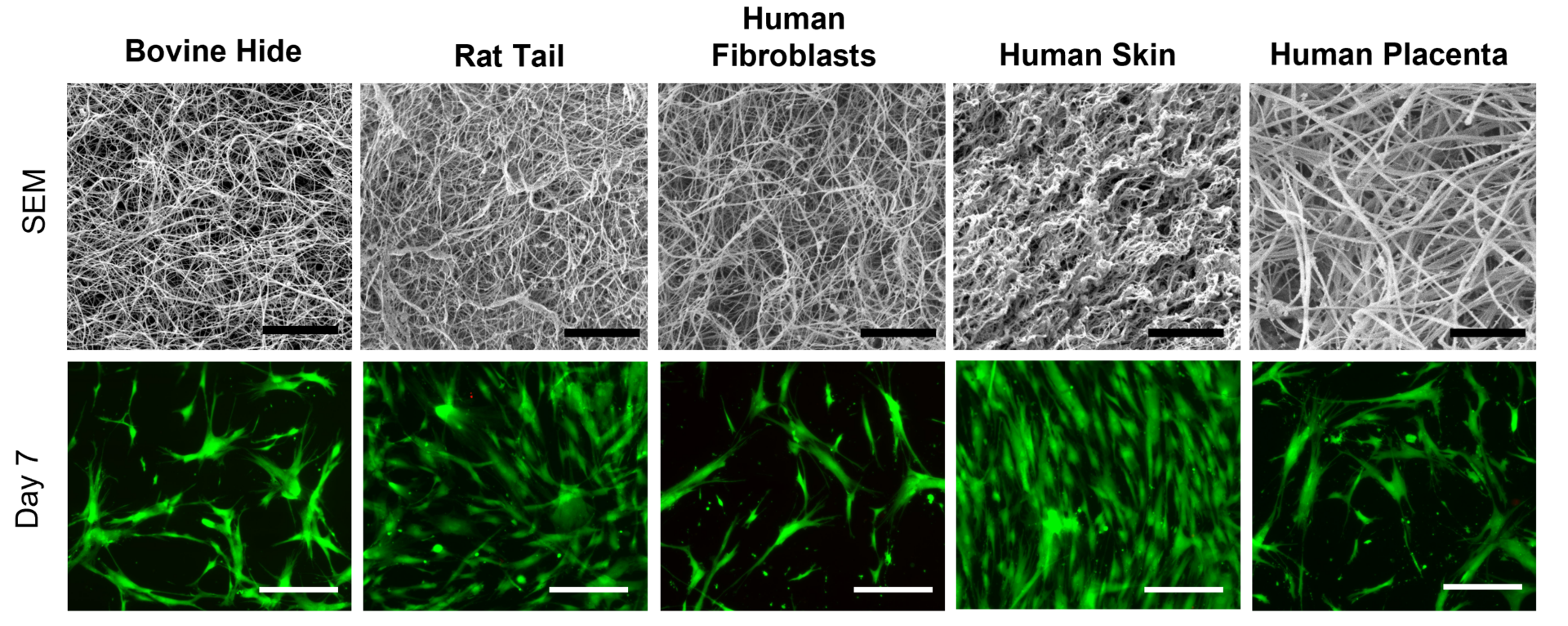Native human collagen type I provides a viable physiologically relevant alternative to xenogeneic sources for tissue engineering applications: A comparative in vitro and in vivo study
, , , et al. J Biomed Mater Res. 2022; 110( 10): 2323– 2337. doi:10.1002/jbm.b.35080

Researchers compare the physico-chemical properties and suitability for tissue engineering human collagen type I-based hydrogels versus animal-derived collagen type I-based hydrogels. The study found that species and tissue-specific variations of collagen sources significantly impact the physical, chemical, and biological properties of collagen hydrogels, and that not all sources of human collagen behave similarly. The results suggest that commercially available human collagen can be used in place of xenogeneic sources to create functional scaffolds, but factors such as gelation kinetics, swelling ratio, collagen fiber morphology, compressive modulus, stability, and metabolic activity of cells must be considered in the development of 3D tissues for drug screening and regenerative medicine applications.
![]()
